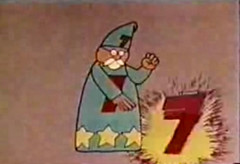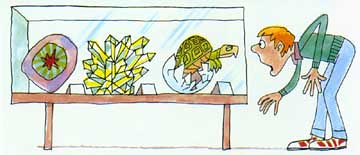Monday, April 18, 2005

Archives
- March 2005
- April 2005
- May 2005
- June 2005
- July 2005
- August 2005
- September 2005
- October 2005
- November 2005
- December 2005
- January 2006
- February 2006
- March 2006
- April 2006
- May 2006
- October 2006
- December 2006
- February 2007
- March 2007
- April 2007
- May 2007
- June 2007
- July 2007
- September 2007
- October 2007
- November 2007
- December 2007
- March 2008


4 Comments:
"Nature is, however, only implicitly the Idea, and Schelling therefore called her a petrified intelligence, others even frozen intelligence; but God does not remain petrified and dead; the very stones cry out and raise themselves to Spirit."
Hegel [Encyclopedia 1830 s. 247]
I wish I had had a caption contest--you would have won.
(It so happens that I was reading the Encyclopedia this weekend, §350 ff. on the animal organism.)
I'm having trouble locating the quotation, though. I find it neither in section 247 nor on Seite 247 in my edition. Could you maybe situate it architechtonically?
I've taken the quotation from E. E. Harris' 'How Final Is Hegel's Rejection of Evolution?' in Stephen Houlgate's "Hegel and the Philosophy of Nature." (SUNY Press, 1998) The citation (which I did not report in full - mistakenly - in my initial comment) is to section 247, but more precisely to the Zusatze to Miller's (translation) "Hegel's Philosophy of Nature. Being Part Two of the Encyclopaedia of the Philosophical Sciences" (1830)[Oxford: Clarendon Press, 1970] pp. 14 - 15. My big Three Volume Philosophy of Nature is at the office. I will situate the quotation tomorrow, after sneaking a look at it. The funny thing is, I just happened to be reading the end of the Harris piece when I logged on to the Kantian Castle. Hegel also has some great stuff on crystals. The Philosophy of Nature is, I'm sure you know, intimidating. In fact, all of the German Idealists' approaches to the Philosophy of Nature is intimidating. It feels so foreign somehow - no matter how many times I read McDowell's therapeutic advice concerning the rejection of a "Bald Naturalism" and the "partial re-enchantment of nature." I guess I ought to resign myself to a life of perpetual oscillation.
R.Eason
Thanks, Robb. My edition has Hegel's Anmerkungen--the explanatory notes he added to the second edition--but not the Zusätze, which, I believe, are snippets from topically appropriate lecture notes added posthumously by the editor of Hegel's works.
I reject the austerity of the editors of the Felix Meiner edition--surely the history of the Encyclopedia's reception is crucial to understanding Hegel's place in a history of philosophy--and I wish I had the Zusätze.
If I remember right, Kant says some cool stuff about crystals, too. I'll have to crack open the KdU again and check. I'm definitely into philosophical discussions of the difference between organic and inorganic nature.
BTW, Hilary and I just saw the *best* rock collection ever. It is at a natural history museum in Hinckley, ME, on the campus of the Good Will Hinckley school for orphans. I desperately wanted to buy a cinnabar sample at the gift shop--recall Kant's discussion of the judgment that cinnabar is red--but they had none. :(
Post a Comment
<< Home